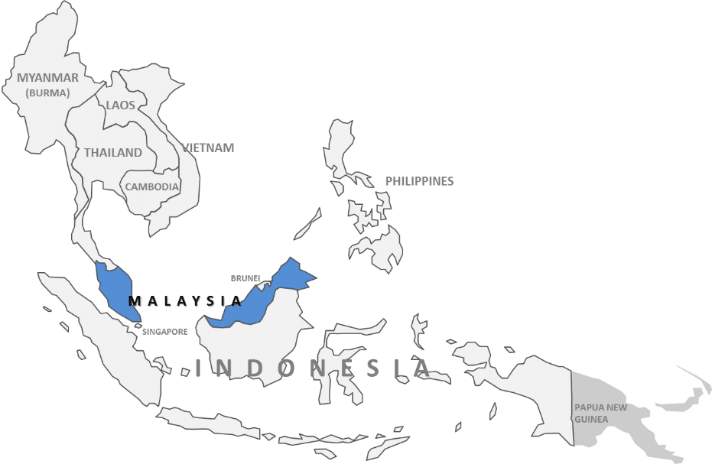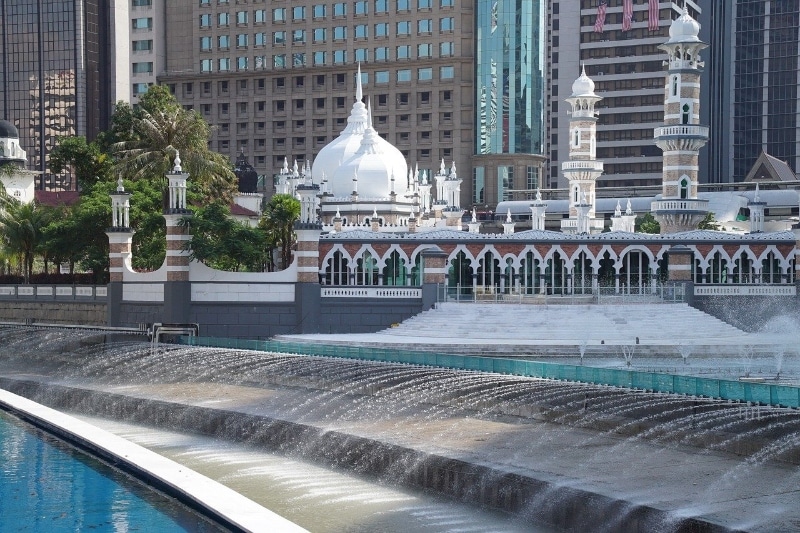Malaysia is one of the more advanced economies in South East Asia, with a robust export-oriented manufacturing base and GDP per capita (USD 11,414 in 2019) second only to Singapore in the region. According to the World Bank, the country presents one of the most open economies in the world with a trade to GDP ratio averaging over 130% since 2010. Openness to trade and investment has been instrumental in employment creation and income growth.

The government has long adopted a business-friendly environment to attract businesses and investments from abroad. This is reflected in the country’s 12th position globally in the World Banks’ Ease of Doing Business rankings in 2020. There are over 5,000 foreign companies from over 60 countries currently operating in Malaysia, which use the country as a base to serve the region. Companies are attracted by the competitive cost of doing business in the country, its strategic location, ready access to talent, strong regulatory and financial frameworks, and good infrastructure.
Major sectors in Malaysia include electrical appliances, electronic parts and components, palm oil, petroleum and liquefied natural gas, wood and rubber. The government is currently aiming to attract investments into high-tech industries such as aerospace, medical, maritime, and biotech and transform the country into a high-end manufacturing base. Parts of this strategy includes establishing designated areas for industries such as Penang for the electronics sector; the Kuala Lumpur International Airport (KLIA) Aeropolis for air cargo and logistics; Maintenance Repair and Overhaul (MRO) hub in Subang; and Biocity in Technology Park Malaysia, Kuala Lumpur for the medical and life sciences sector. It is also focusing on becoming a financial center in the region, specializing in Islamic finance.
Malaysia’s consumer demographics makes it an attractive market in the long-term, due to relatively high levels of income and expanding, urbanized population. Malaysians are becoming more westernized, sophisticated and cosmopolitan. Consumers are brand-conscious and increasingly concerned about quality. Malaysians are seeking an improved lifestyle, particularly in the areas of health and wellness, leisure and entertainment, food and dining. Being a predominantly Muslim country, halal products are in great demand.
The following are some key consideration for foreign companies considering entry into the Malaysian market:
- Malaysia is a country divided into two distinct geographical regions separated by the South China Sea, each offering unique opportunities. In peninsular Malaysia, also referred to as West Malaysia, the state of Selangor and the capital Kuala Lumpur (located within Selangor but administered federally) together account for around 40% of national GDP. They host multiple industrial clusters, while Greater Kuala Lumpur is Malaysia’s primary facilitator of trade, most commercially important region for Multinational Companies in sectors such as oil, gas & energy, engineering services, healthcare, consumer products and supply chain. Penang in the north hosts the electrical and electronics manufacturing hub. East Malaysia, which consists of the states of Sabah and Sarawak, occupies the northern part of the island of Borneo. Sabah is the largest oil palm producing state in Malaysia, while Sarawak has extensive oil & gas resources.
- The Malays and other indigenous ethnic groups, who are accorded the ‘Bumiputra’ status (which means ‘son of the soil’), make up 69.3% of the population, have special privileges and play a dominant role politically. Partnering with a Bumiputra (Malay) company may help open doors, particularly for those vying for a government contract.
- Malaysia continues to be a highly price-sensitive market. While the country has an appetite for advanced technologies, the price should match the benefits offered, as local companies can always turn to trading partners from other countries for alternatives, thanks to the good bilateral relationships that Malaysia has with many other countries across the globe.
- The time taken to build up a good relationship with a business partner or a client is well-spent, and is likely to yield results in the long term. Companies have to accept that decision making can be slow, as the market is still relatively risk-averse.
Orissa International can assist companies with market entry into Malaysia through a range of customized services. Please fill out the form below to speak to our experienced trade and research consultants on-the-ground.

